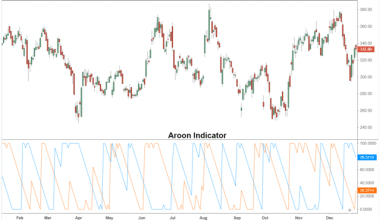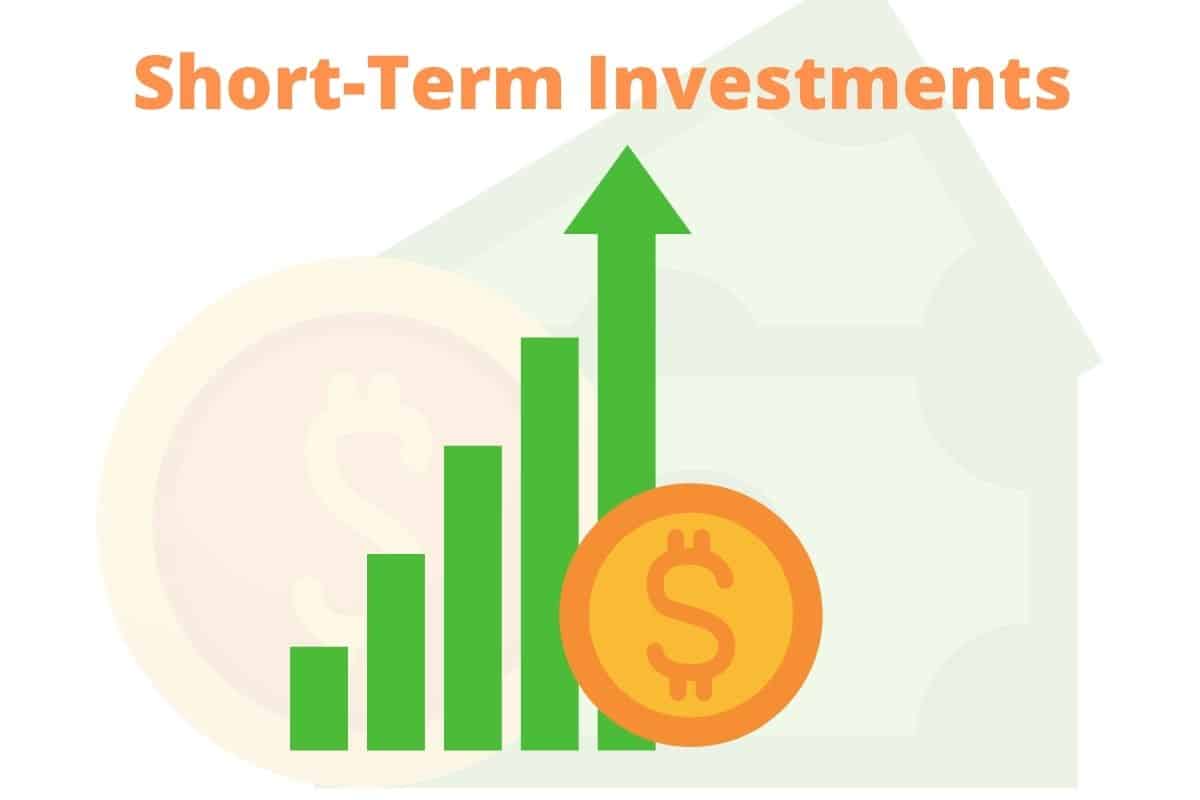The best investment apps for beginners provide low fees as well as access to the types of accounts and investment products that are most important to you. The app you select should fit your investment style and provide the tools you require (e.g., educational guides and/or courses, human advisor access, and strong customer support) to achieve your financial objectives. The best investment apps for beginners, students, and Android users in 2023 will be discussed in this post.
How We Determined the Best Investing App for Beginners
For beginners, it is essential to choose an investment app that combines low costs with the features that are most important to them. There is a brokerage and investment app designed to meet your needs, whether you want to build a passive portfolio of funds, an active portfolio of stocks, or any other investment strategy.
To make our selections, we focused on costs and fees, app features, account types available, investment products available, and beginner-friendly features to manage your investment account on the go.
Best Investment Apps for beginners 2023
Want to get your financial life back on track in 2023? Here are the best investment apps for beginners. A good finance app can handle routine financial tasks, transfer money to investment accounts, and track spending. However, the best investment apps can also help you trade stocks quickly, track your account in real-time, learn about markets, and much more. Investment apps have grown in popularity as a result of their versatility. Here are some of the best apps for organizing and investing your money.
All of these investment apps are great for beginners, and they make it simple for those who are just getting started with investing or who want to play a stock-picking game for fun.
#1. SoFi Invest
SoFi is a top choice for beginners due to its user-friendly platform and low pricing. SoFi Invest allows you to get started with just $1, and there are no trade commissions or recurring account fees. Even the managed portfolio product, SoFi automated investing, which picks and manages your ETFs for you, is free to use.
The app lists stocks and ETFs by category, making it simple to look for potential investment opportunities. It does not have the most comprehensive investment research, but it has enough to get you started and guide your trading decisions.
#2. Ally Invest
Simple investment platforms often work well for beginners. Ally Invest provides this service via its mobile app. You can trade stocks and ETFs without commissions; mutual fund trades have a $9.95 commission. There are no monthly fees or minimum balance requirements to be concerned about.
Furthermore, if you prefer to use a robo-advisor, Ally Invest Robo Portfolios will create a personalized portfolio of ETFs for you. The account offers four portfolio options: core, income, tax-optimized, and socially responsible. You will only need a minimum of $100 to get started, and there will be no advisory fees.
#3. Acorns Invest
Acorns is an investment app for people who know they should invest but lack the time or desire to manage it themselves. Acorns will handle everything for $3 per month. This includes automatic spare change investing via transaction round-ups, automated transfers, retirement account savings, banking perks, and a fully automated investment plan.
And for both of its pricing plans, Acorns Personal and Acorns Family, the platform invests your money in a diversified portfolio of ETFs.
#4. TD Ameritrade investment account
If you are new to the markets and want to start trading actively, TD Ameritrade is a good place to start. It does not charge commissions on stock or ETF trades and provides multiple account platforms to accommodate different investment styles and goals.
When you first start, you’ll probably feel most at ease in the main TD Ameritrade app. As your investment knowledge grows, you can upgrade to Thinkorswim, TD Ameritrade’s premier active trading platform. It has a plethora of features that are extremely beneficial to active traders. Importantly for beginners, Thinkorswim includes a feature that allows them to chat with an expert trader.
#5. Public
When you’re new to the stock market, it can be intimidating to conduct your research and selection of stocks and other investments. The public combines features from social networks such as Facebook and Twitter with traditional brokerage features. As a result, the app is ideal for beginners learning their way around the markets.
#6. Robinhood
Robinhood was an early adopter of the no-commission brokerage model. It is still a good option for beginners because they can invest in stocks, ETFs, options, and cryptocurrencies with no commissions. Typical stock and ETF investors will be able to use Robinhood for free, though premium accounts with additional features are available for a monthly fee beginning at $5.
#7. Stockpile
Stockpile also provides commission-free stock and ETF trades, as well as some unique features that complement its $0 commission fee structure. The platform also recently launched cryptocurrency investing. Furthermore, Stockpile allows for fractional share investing and the gifting of stock via gift cards, making it ideal for the youngest investors.
#8. Betterment
Betterment is one of the largest and most popular robo-advisors, and for good reason. The app offers professionally managed portfolios made up of a variety of ETFs that are calibrated to your risk tolerance and when you need the money. Betterment can create socially responsible portfolios that focus on issues such as climate change and social impact.
#9. Fidelity Investments
If you wanted to live your entire financial life on Fidelity Investments, you could do it with little difficulty—and have the best-integrated experience. To name a few, Fidelity offers an investment account, a checking account, an IRA, a business retirements account like a SEP IRA, a savings account, a robo-advisor account, and even credit card accounts.
#10. Charles Schwab
Charles Schwab does well for experts, but it’s also a great app for beginners because of all the resources it offers. Schwab offers a wealth of research and education to help new investors get up to speed on topics like investing and personal finance.
Best Investment Apps for Students
College can be a stressful time for students, but investing shouldn’t add to that stress. College is typically when people start investing their money, and you must discover investment apps for students that grow with you as your financial needs change.
This flexibility is provided by the best investment apps for college students, making them powerful enough for long-term use while remaining simple enough to understand at first glance.
These platforms will also make the transition from college life easier by aggregating all personal finance tools in one location. These are some of the best investment apps for college students.
What Are the Best Investment Apps for Students in College?
When searching for the best investment apps for beginners, look for apps that provide a variety of investment options, allow you to track your stocks as you see fit, research and read stock news, and grow with your needs.
Investing apps for beginners should also be simple to use, mobile-friendly, and include useful features like automatic rebalancing and the ability to set up recurring investments with a single swipe.
The following is a list of the best investment apps for college students who are just beginning to invest.
#1. Plynk
PlynkTM is an app that helps you start investing and learn as you go, and they’re currently offering up to $60 in bonuses for new accounts. The Plynk app assists beginner investors in putting money into an investment portfolio. Plynk, in particular, provides access to a variety of stocks, ETFs, mutual funds, and cryptocurrency—all for a single dollar.
#2. Webull
Webull is a new free stock trading app that provides a better platform for investing tools than Robinhood. The Webull investing app provides several investment strategies, including “Instant Orders.” This enables Webull users to execute trades in seconds.
Furthermore, the app provides a high-quality trading platform that is simple to use and comprehend—even for beginners.
#3. Acorns
Acorns is an investing app for minors and young adults that is specifically designed for beginners who want to start investing in stocks. While it is beneficial to introduce children to investing, it also works beyond childhood. Acorns round up your debit card purchases to the nearest dollar, invests the money for you, and then charges a monthly fee based on your plan.
#4. Vanguard
Vanguard must be included on any list of the best investing apps. Their service has pioneered the reduction of investing fees and the empowerment of the index fund movement.
While apps like Robinhood have reduced trading commissions to zero, Vanguard has led index fund investors to almost zero fund expenses. When combined, you invest almost nothing. What a fantastic achievement for the small investor looking to invest steadily over time.
#5. Stash
Stash is another all-in-one investing solution that allows users to invest in both individual stocks and ETFs. Many parents like the investing app for kids because it allows them to start investing even before they start college. However, many teenagers and young adults like the app because it gives them control over their money and investments.
Best Investment Apps for Android
Investing can be intimidating at first. It is the act of putting money into something to make more money from it. There are numerous options, including 401k plans, the stock market, mutual funds, investment bonds, and a variety of other options. People who invest wisely can earn extra money, retire someday, and truly take control of their finances. Here are the top Android investment apps.
Please keep in mind that this list is primarily for people in the United States, as that is where the majority of our readership resides. However, many of these apps are also available in other countries. Furthermore, nothing in this article constitutes financial advice.
#1. Google Search
Nothing matters more than knowledge when it comes to investing. In these situations, Google Search is your best friend. With the click of a button, you can look up companies to learn more about them, and find SEC filings, the most recent news, and other information. Google Search also supports stocks.
#2. Robo-Advisor
Robo-Advisors are an interesting way to invest money. They invest your money using automated, algorithm-driven services. This feature is available at several brokerages. Fidelity (linked at the button), Vanguard (Google Play), and M1 Finance are a few of the companies with a proven track record (Google Play). These apps also allow you to manually trade stocks to see if you can outperform your bot advisor.
#3. Traditional brokerage apps like TD Ameritrade
Not so long ago, traditional brokerages were terrible on mobile. That is why Robin Hood became popular in the first place. However, most brokerages have simplified their user interfaces, made many of their trading tools more accessible, and reduced their costs. Traditional brokerages include TD Ameritrade (linked at the button), E*Trade (Google Play), and others.
#4. Wallet
Making sure you have actual money to invest is a big part of investing. You might need something like a wallet for that. A wallet is a tool for money management and budgeting. You connect your bank accounts, see how your money is spent, and then try to cut back so you have more money to invest.
#5. Wealthfront
Wealthfront is similar to Acorns. The difference is that you put money into this one manually so that the service can invest on your behalf automatically. Wealthfront provides you with two options. You can buy a portfolio from them or create one yourself. Wealthfront then handles all of the tradings on your behalf, allowing you to watch your money grow.
What to Think About When Choosing Investment Apps
When it comes to investment apps, consider how you intend to use them. Do you need an educational tool or do you want to trade and invest? Some apps charge fees that can reduce your investment returns, whereas others have extremely low fees and offer commission-free trading. If you want to trade cryptocurrencies, make sure the app or broker offers that feature—not all brokers offer crypto trading.
Deciding How Much Money to Invest
The good news for new investors is that they don’t need much money to get started. Fees are so low, if not non-existent, that you can start with almost any amount of money. In reality, what you start with is far less important than your saving and investing discipline over time.
The key to long-term investing success is to add money regularly. To build wealth, you’ll want to add money to the account and keep investing in your positions regularly.
What is the best investing app right now?
Best stock investment apps
- Betterment
- Invstr
- Acorns
- Wealthbase
- Wealthfront
- Fidelity Investments
How can I invest 100 money?
Best Ways to Invest $100 Starting Today
- Establish an emergency fund.
- Make use of a robo-advisor or micro-investing app.
- Invest in a mutual fund or exchange-traded fund that tracks a stock index.
- Purchase stocks using fractional shares.
- Place it in your 401(k)
- Create an IRA.
How to invest 500 dollars for a quick return?
How to make $500 in investments
- Use a Robo Advisor to invest.
- Make a 401(k) or IRA contribution.
- Do It Yourself with commission-free ETFs.
- Purchase fractional stock shares.
- Buy bonds.
- Invest in real estate.
- Clear your debt.
- Avoid trying to invest $500 for a quick return.
What if I invested 5 dollars a day?
Investing just $5 per day in an account with a 10% annual return could net you $30,000 in ten years, $330,000 in thirty years, and $2.3 million in fifty years. An account with a lower annual return of 6.5% could net you around $26,000 in ten years, $168,000 in thirty years, and $667,000 in fifty years.
How much money do I need to start investing?
You don’t need a large sum of money to begin investing. In fact, thanks to zero-fee brokerages and the magic of fractional shares, you could start investing in the stock market with as little as $10.
Related Articles
- HOW DOES TD AMERITRADE MAKE MONEY?
- HOW AND WHERE TO BUY STOCKS In 2023 (All You Need)
- BROKERAGE ACCOUNT: How To Open One in 2023 Step-by-Step Guide
- BEST INVESTMENT COMPANIES IN 2023






